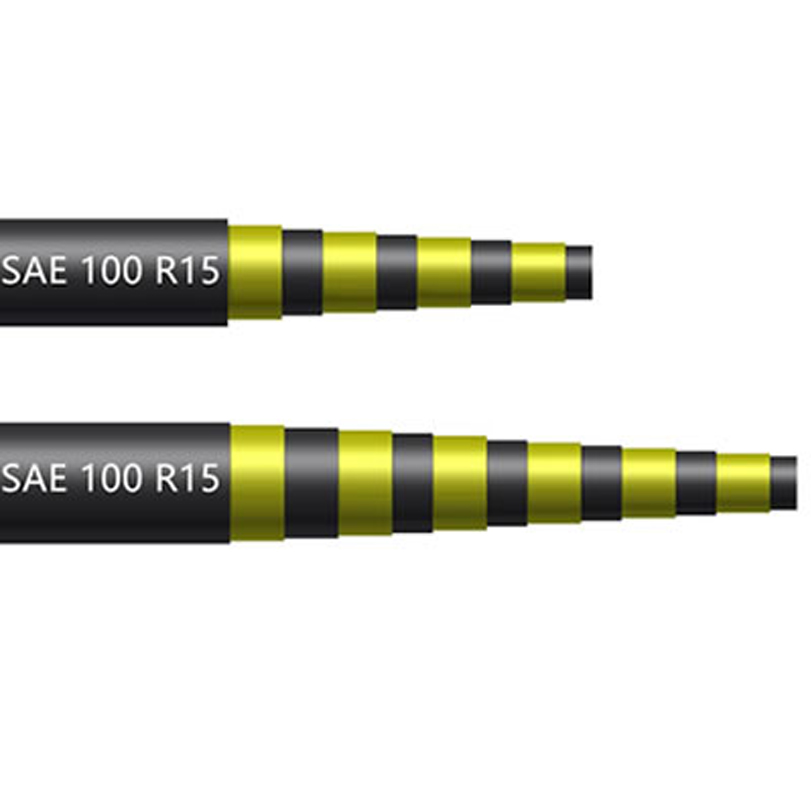12 月 . 04, 2024 16:27 Back to list
Durable Flexible Teflon Hose for Versatile Fluid Transfer Applications
The Versatility of Flexible Teflon Hoses
Flexible Teflon hoses are essential components in various industrial applications, renowned for their durability, resistance to extreme temperatures, and chemical compatibility. Unlike traditional rubber or plastic hoses, Teflon (polytetrafluoroethylene, PTFE) offers a unique blend of flexibility and strength, making it ideal for use in demanding environments. This article explores the characteristics, benefits, applications, and maintenance of flexible Teflon hoses.
Characteristics of Flexible Teflon Hoses
One of the standout features of flexible Teflon hoses is their exceptional thermal stability. These hoses can withstand a wide range of temperatures, typically from -320°F to 500°F (-196°C to 260°C), without losing structural integrity. This capability makes them suitable for both low and high-temperature applications.
Another critical attribute of Teflon hoses is their excellent chemical resistance. Teflon is inert and non-reactive, meaning it can handle a wide variety of aggressive chemicals, including acids, bases, solvents, and more. This resistance to corrosion significantly extends the lifespan of the hose, reducing the risk of leaks and failures in critical systems.
Moreover, flexible Teflon hoses are designed to handle high pressures. Many industrial processes require hoses that can operate safely under extreme pressures, and Teflon hoses excel in this regard. Their robust construction allows them to maintain performance irrespective of the challenging conditions.
Benefits of Using Flexible Teflon Hoses
The use of flexible Teflon hoses brings numerous advantages to various applications. First and foremost, their flexibility allows for easy installation in tight spaces and complex configurations. Unlike rigid pipes, these hoses can bend and twist, accommodating various layouts and reducing the need for additional fittings and connectors.
Another significant benefit is their low friction coefficient. Teflon hoses allow for smooth fluid flow, minimizing pressure drops and enhancing system efficiency. This property is particularly beneficial in applications involving the transfer of viscous fluids, where reduced turbulence can improve performance.
The non-stick nature of Teflon is another significant advantage. The smooth surface minimizes the accumulation of residue, making cleaning and maintenance much easier. This feature is especially crucial in industries like food processing and pharmaceuticals, where stringent hygiene standards must be maintained.
flexible teflon hose

Applications of Flexible Teflon Hoses
Due to their unique properties, flexible Teflon hoses find applications across various sectors. In the chemical industry, they are used for transferring corrosive substances safely. Their ability to resist extreme temperatures and chemicals makes them suitable for use in reactor systems, pipelines, and storage tanks.
In the aerospace industry, flexible Teflon hoses are employed in fuel and hydraulic systems due to their reliability and performance under pressure. The ability to withstand both high and low temperatures is crucial in environments where temperature fluctuations are significant.
Moreover, in the automotive industry, these hoses are used in brake lines and fuel lines, delivering superior performance and safety. The aerospace and automotive industries demand reliable components that can perform under extreme conditions, and flexible Teflon hoses meet these rigorous standards.
In addition to these industries, flexible Teflon hoses are also widely used in the medical field. Their biocompatibility and ease of sterilization make them suitable for various medical devices and equipment, ensuring safety and efficacy in healthcare applications.
Maintenance of Flexible Teflon Hoses
While flexible Teflon hoses are designed for durability, proper maintenance is essential to ensure longevity and optimal performance. Users should regularly inspect hoses for signs of wear, such as cracks or abrasions, which can compromise their integrity. Although Teflon is resistant to many chemicals, exposure to certain corrosive substances can still degrade the material over time.
Cleaning is straightforward due to Teflon's non-stick properties. Routine flushing with appropriate solvents can help maintain flow efficiency and prevent blockages from buildup. It's also important to follow manufacturer guidelines regarding temperature and pressure limits to avoid damaging the hoses.
In conclusion, the versatility of flexible Teflon hoses makes them indispensable in various industries. Their unique properties, such as thermal stability, chemical resistance, and flexibility, allow them to excel in even the most demanding applications. As industries continue to evolve, the importance of reliable components like flexible Teflon hoses will only increase, making them a key player in the future of industrial technology.
-
EN857 2SC Hydraulic Hose Suppliers OEM & China Manufacturers
NewsMay.30,2025
-
51mm Hydraulic Hose Manufacturer China OEM Durable & Custom Solutions
NewsMay.30,2025
-
OEM Rubber Air Hose Supplier Durable Custom Solutions
NewsMay.29,2025
-
High-Pressure Wrapped Cover Steel Wire Spiral Hydraulic Hose Supplier
NewsMay.29,2025
-
Rubber water suction and discharge hose
NewsMar.07,2025
-
SAE 100 R6/EN 854 R6 Fibre Braided Oil Hose
NewsMar.07,2025



